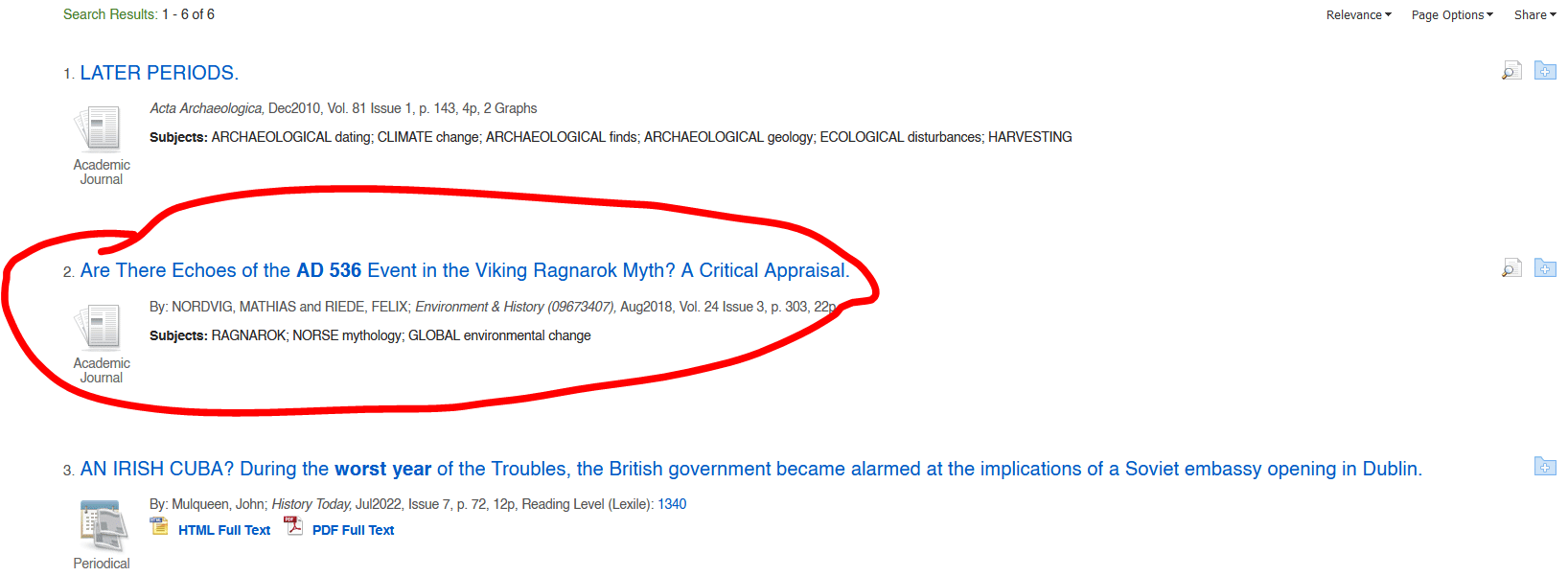Have you ever been at the end of a long, arduous research project and – just when you felt like giving up – the perfect resource emerges from the complex web of search terms you’ve created? Great job! You’ve applied everything we’ve covered in the Better Searches series: Boolean Operators, opens a new window to make the database work for you, Match an Exact Phrase, opens a new window to find precisely what you are looking for, Grouping, opens a new window to combine it all into one powerful search string, and Subject Terms, opens a new window when your own chosen keywords come up empty. But there is one little problem—that perfect research article you found, well, it’s missing something: the actual article. All hope is not lost! This blog will give you some tips on how to track down that article if you hit this roadblock.
Let’s look at an example:
I recently learned that one year stands out in some historians’ minds as the worst in human history: 536 AD. Not height of the Bubonic Plague or the peak of the Spanish Flu—536 AD was said to be a “dust veil” event that covered much of the world, hid the sun, and led to wide-spread crop failure. Morbid curiosity peaked? Me too!
After much searching using what little I knew about that year, I eventually found something that dovetailed with another favorite interest of mine: Norse mythology. I excitedly read the title but realized—to my dismay—that the full text article was not attached. 
While we don’t have the full article in front of us, we do have a lot of information that can help us track it down. The name of the publication, publication year, and the volume and number are all information that we can use to possibly track it down.

The first thing you can try is to search across multiple databases (if the option is available). Then limit results to full-text only! The EBSCOhost collection of databases, opens a new window can all be searched at once, and you can be surprised at what you find. In this case, however, still no luck.
What next? Back up a step, but keep that important identification information with you we mentioned earlier. Let’s try searching in another database altogether!
Gale Power Search, opens a new window allows us to search across all of our Gale databases at once. Now, we can search for the title, but because we are searching so many areas at once, it can be hard to parse through all that information. Instead, we will utilize today’s search tip: searching by publication!

Search by typing in the Publication title first, then select the correct year. Finally, pick the volume and number of the academic journal issue. After that, a list of titles from that publication -- with full text -- will appear. And in that list...

The full text article appears!
That's how you can search by publication name. If you have any questions about this or other research tips and tricks, reach out to a reference librarian, opens a new window. We are always happy to help!


Add a comment to: Principles for Better Searches: Publications